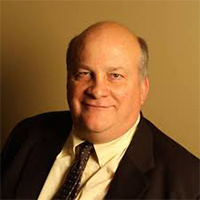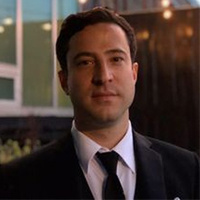Olympic Island DUI-DWI Lawyers, Ontario
Sponsored Law Firm
-
 x
x

Click For More Info:
-
Caramanna, Friedberg LLP
700 Bay St 405, Box 144 Toronto, ON M5G 1Z6» view mapCriminal Defense Law Defending Your Rights
Caramanna, Friedberg LLP provides comprehensive legal advice and vigorously protects the rights of clients facing criminal charges and regulatory offences.
416-924-5969
Not enough matches for Olympic Island DUI-DWI lawyer.
Below are all Olympic Island lawyers.
Sponsored Lawyers
1-6 of 6 matches
Employment, Labor Law
John-Edward C. Hyde is a Partner and Chair of the Management-side Labour Group, at Hyde HR Law. John is one of only 22 lawyers in Canada, certified as a Specialist in Labour Law by the Law Society of Upper Canada. John advises management on all aspects of employment and labour law, including representation before administrative tribunals, collective agreement negotiation, arbitrations, wrongful dismissal defense and human rights. He also assists clients in providing strategic legal and human resources advice on labour and employment matters arising out of complex mergers, acquisitions and the sale of businesses. John’s pre-law background is in operations and human resources management in the transportation industry. This experience provides him with the unique opportunity to assist clients in the formulation of practical legal solutions, specifically tailored to their needs. John represents private, public and institutional clients in a wide variety of labour and employment matters across Canada. His clients include international transportation interests, construction companies, manufacturers, health care providers, universities and major breweries. John has developed widely recognized legal sub-practices in the specialized areas of Transportation and Construction Labour Relations. He is the author of a number of articles in various labour and employment publications, and frequently appears in the press, to comment on critical issues in HR law.
(more)Divorce & Family Law, Family Law, Divorce, Juvenile Law
Providing a unique combination of family or criminal law legal services and life coaching using a holistic approach. Helping clients as a lawyer, supportive life coach, or both. Family Law Services: -Divorce -Separation -Custody/Access Coaching Services: -Life Coaching -Divorce & Relationship Coaching -Women's Coaching -Customized Programs -Group Programs & Workshops
(more)Accident & Injury, Insurance, Car Accident, Slip & Fall Accident, Products Liability
My clients appreciate the personal service they receive from my firm. I believe it is important to keep in touch with clients and to keep them regularly informed of developments in the case. It is my policy to return phone calls and e-mails promptly. In representing disability/personal injury claimants, I act on a contingency basis. That means you will pay no upfront fees. My fee payment comes as a percentage of whatever financial compensation I obtain in your claim. In the unlikely event that I do not obtain a financial settlement or award, you owe me nothing but out-of -pocket expenses.
(more)Criminal, DUI-DWI, Traffic, Felony, Misdemeanor
Our winning team of experienced Ontario criminal lawyers provides hope and real solutions to those charged with DUI, DWI, impaired driving or other criminal offences. We offer a free 30-minute consultation, affordable payment plans and we do not charge interest or for travel costs/mileage. ----------------------------------------------------------------------- After being called to the Ontario Bar in 1984, Richard Aitken began to focus his practice on criminal defence matters. Over the years, this focus shifted more and more to include cases involving DUI – the area of law that now forms the bulk of the Aitken Robertson practice. Mr. Aitken has been assisting clients with their DUI charges for over 30 years now. Mr. Aitken has extensive training on Standardized Field Sobriety Testing, Drug Recognition Evaluation and DUI trial tactics. He has completed a wide variety of DUI defence courses, such as his most recent ones including “Mastering Scientific Evidence in DUI/DWI Cases” in March of 2015, “Scientific Evidence in Impaired Driving Cases” in 2014, “A Recipe for Success – Trial Techniques that Win” in 2013, as well as several courses regarding further DUI tactics and training on both the Intoxilyzer 5000C and 8000C breath testing instruments in Atlanta, Georgia in 2014. Mr. Aitken’s practice extends to several different Ontario, Canada cities, including full-time operations in Peterborough, Oshawa, and Kingston, and satellite offices in Toronto, North York, Scarborough, Markham, and Ajax. Having these locations available to meet with new, prospective and current clients allows Aitken Robertson to offer proficient representation to accused persons all throughout central, eastern and southern Ontario, Canada. Lastly, Mr. Aitken is proud of a number of noteworthy cases. One example is on a summary conviction appeal, prepared by colleague Edwin Boeve, Mr. Aitken made arguments at the level of the Superior Court on a case that dramatically changed the law regarding when an accused person must be given rights to counsel.
(more)Business, Business Organization, Contract, Corporate, Real Estate
I am looking forward to seeing how I can help you. Don’t hesitate to call!
(more)


 Matthew Friedberg Toronto, ON
Matthew Friedberg Toronto, ON AboutCaramanna, Friedberg LLP
AboutCaramanna, Friedberg LLP Practice AreasExpertise
Practice AreasExpertise





